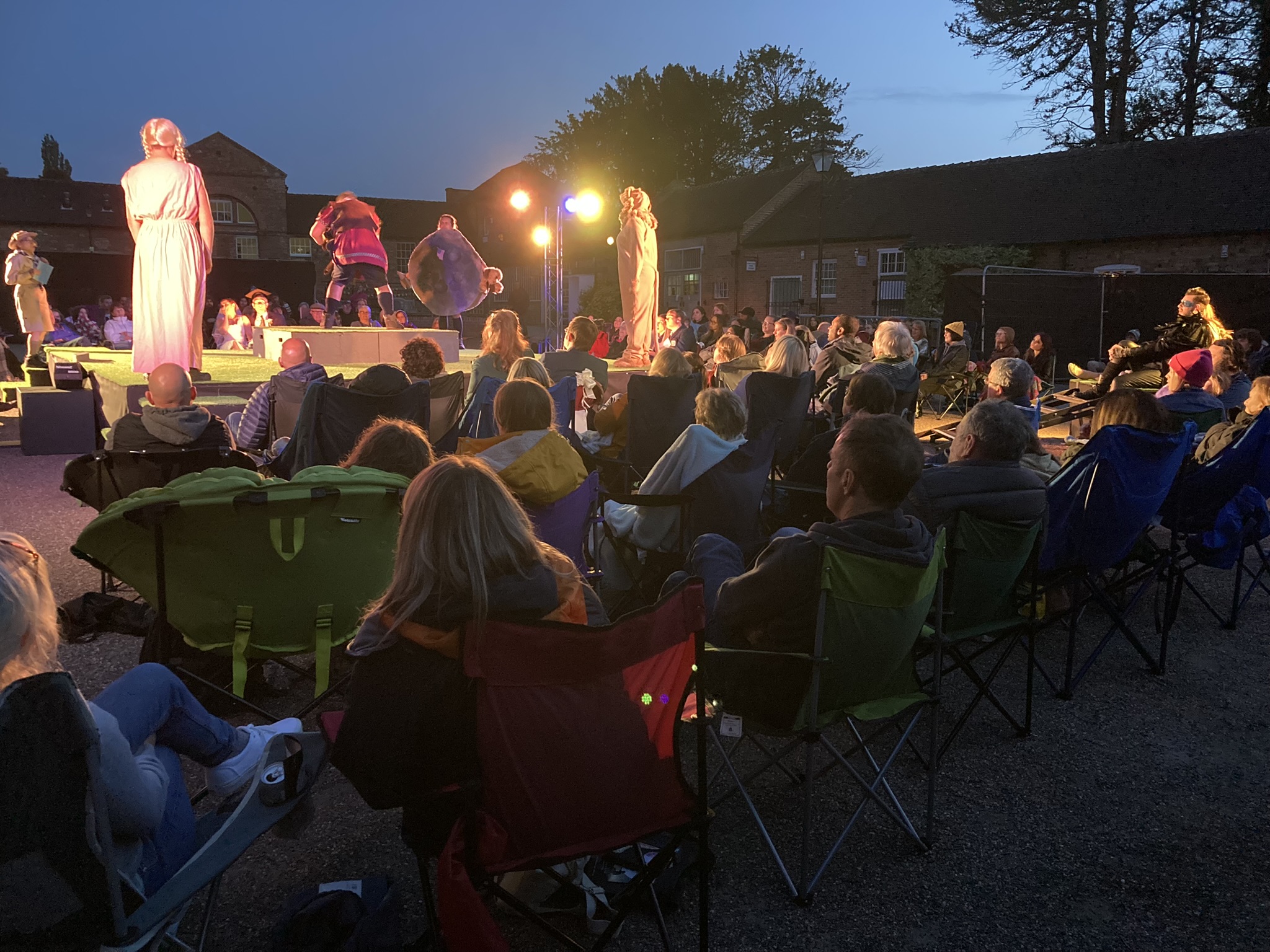Big Read | 21 March 2024
Why more work needs to be done to achieve gender parity
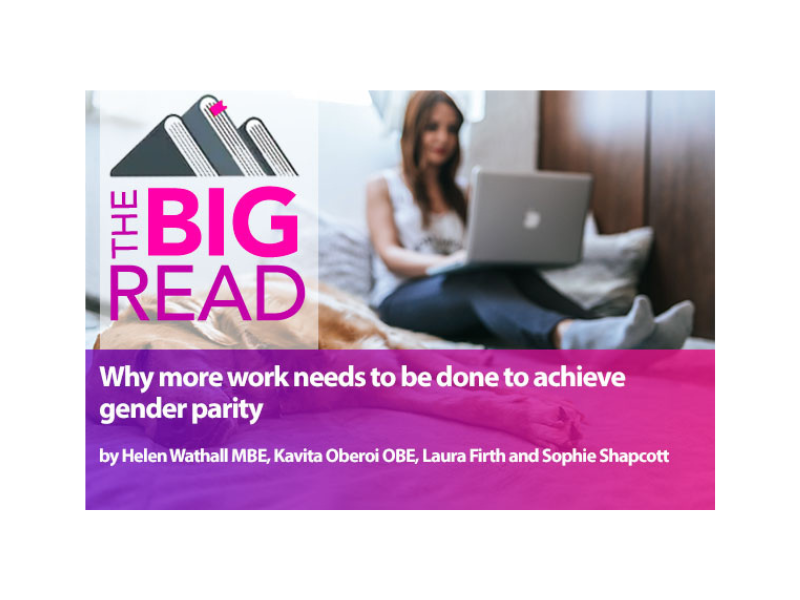
Earlier this month, Marketing Derby celebrated International Women’s Day with a special news bulletin packed with stories about many local inspirational female figures.
The day celebrates women’s achievements, raises awareness about discrimination and urges everyone to take action to drive gender parity.
Here, in their own words, four women from our Bondholder community discuss what it is like to operate as a woman in their chosen fields.
THE FAMILY BUSINESS OWNER
Helen Wathall MBE, Wathall’s
Helen is the fifth generation of her family to run Wathall’s funeral directors in Derbyshire and Staffordshire and chair of St Peters Quarter BID. As one of the few women to be running a funeral business in a traditionally male-dominated profession, her contribution both to the industry and the local community was recognised in 2019 when she was awarded the MBE.
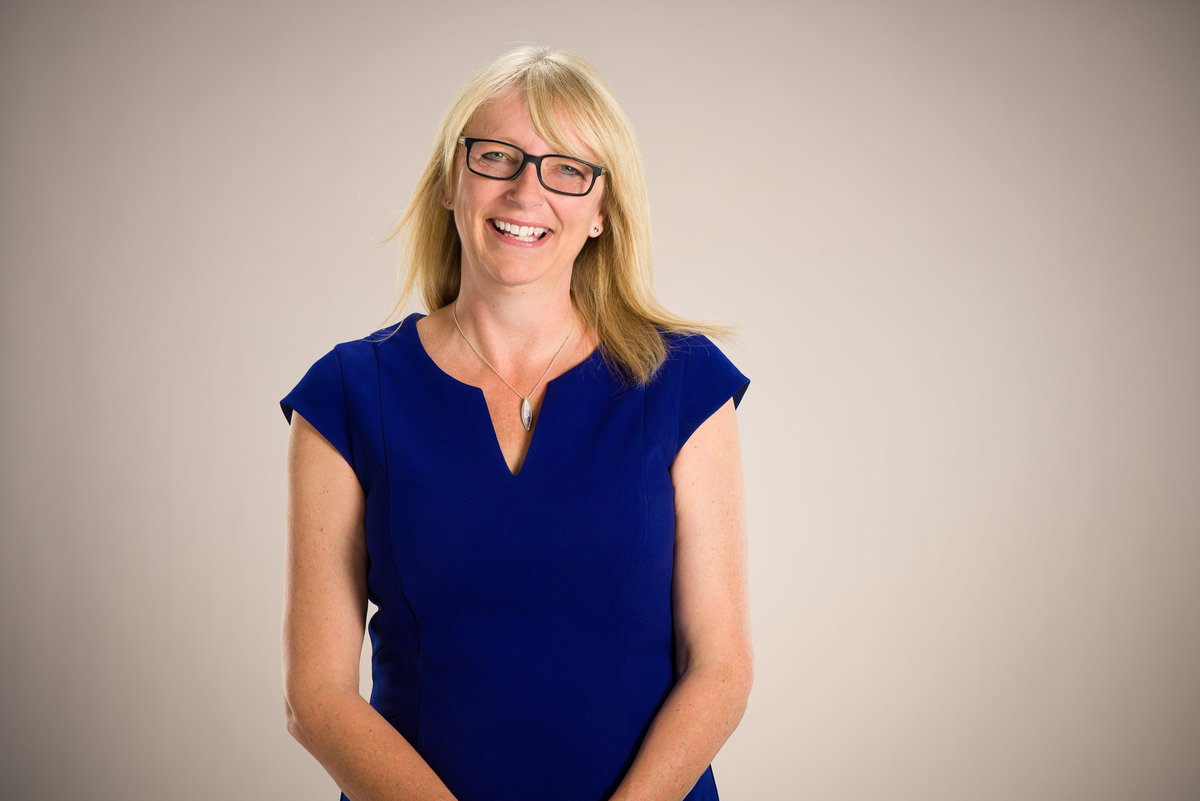
Growing up, I had my sights set on various careers and left college wanting to be a farm estate manager.
My father Bill initially asked me to join the company in January 1985 to help with the accounts and I always regarded it as a short-term option rather than my future career.
I started learning all the aspects of the business, working in every area, and my short-term plans changed when my father became ill.
In 1995, he sadly passed away and along with his existing co-director. I took over the running of the company at the age of 29.
I joined SAIF, the trade association for independently owned funeral directors, more than anything to learn from other funeral directors.
In 2002 I was elected the first woman and at that time, the youngest ever president – representing more than 800 family-owned funeral directors and dealing with government policy and profession issues.
My other ‘first’ came in 2016 when I was appointed to the board of Golden Charter – the UK’s largest funeral plan provider.
Great play was made about me being the first woman on the board, which I did not regard as particularly momentous but, to my male colleagues, it was.
I think the main reason that the funeral industry has traditionally been so male dominated is the 24-hour nature of the business.
People don’t just pass away in business hours, and we are available to families at any time, which can present challenges for someone with family responsibilities.
In my early days at Wathall’s, families would call to arrange a funeral and were often surprised to be speaking to a woman but that was in the 1980s and the world was changing fast.
It did not occur to me at the time that I was breaking the glass ceiling for women in the funeral industry.
In fact, my greatest role model was my grandmother who, in the 1920s, had her own job in a pharmacy and was also the behind-the-scenes driving force behind Wathall’s.
My greatest challenge was probably to move on from the original branding of G. Wathall & Son, which goes back to 1858 – especially now that my two daughters Bec and Charlotte have joined the business.
As with many women, including me, they juggle full-time jobs with childcare but that comes down to the ability to multitask.
Times have definitely changed in this industry. Both at Wathall’s and across the majority of funeral director businesses, there is an equal split between men and women in all roles and at all managerial levels.
I hire the right person for the job that is required and don’t see different roles as being stereotypically male or female.
I also never notice that women are treated differently across the various networks I am involved with, both in the industry and locally with, for example, St Peters Quarter BID, which I chair.
For women who have paved the way and achieved so much in their careers, allowing today’s young women the confidence and ambition that was sometimes lacking back at the start of my career, I feel our next battle is in the continuation of raised awareness around the menopause, so that this next generation will have a smoother time.
THE SUCCESSFUL ENTREPRENEUR
Kavita Oberoi OBE, Oberoi Consulting and Oberoi Business Hub
Kavita is founder and managing director of Oberoi Consulting and Oberoi Business Hub on Pride Park. In 2009 she was named in a Bank of Scotland report as one of Britain’s 100 most entrepreneurial women and in 2014 was awarded an OBE for services to entrepreneurship and start-up businesses.
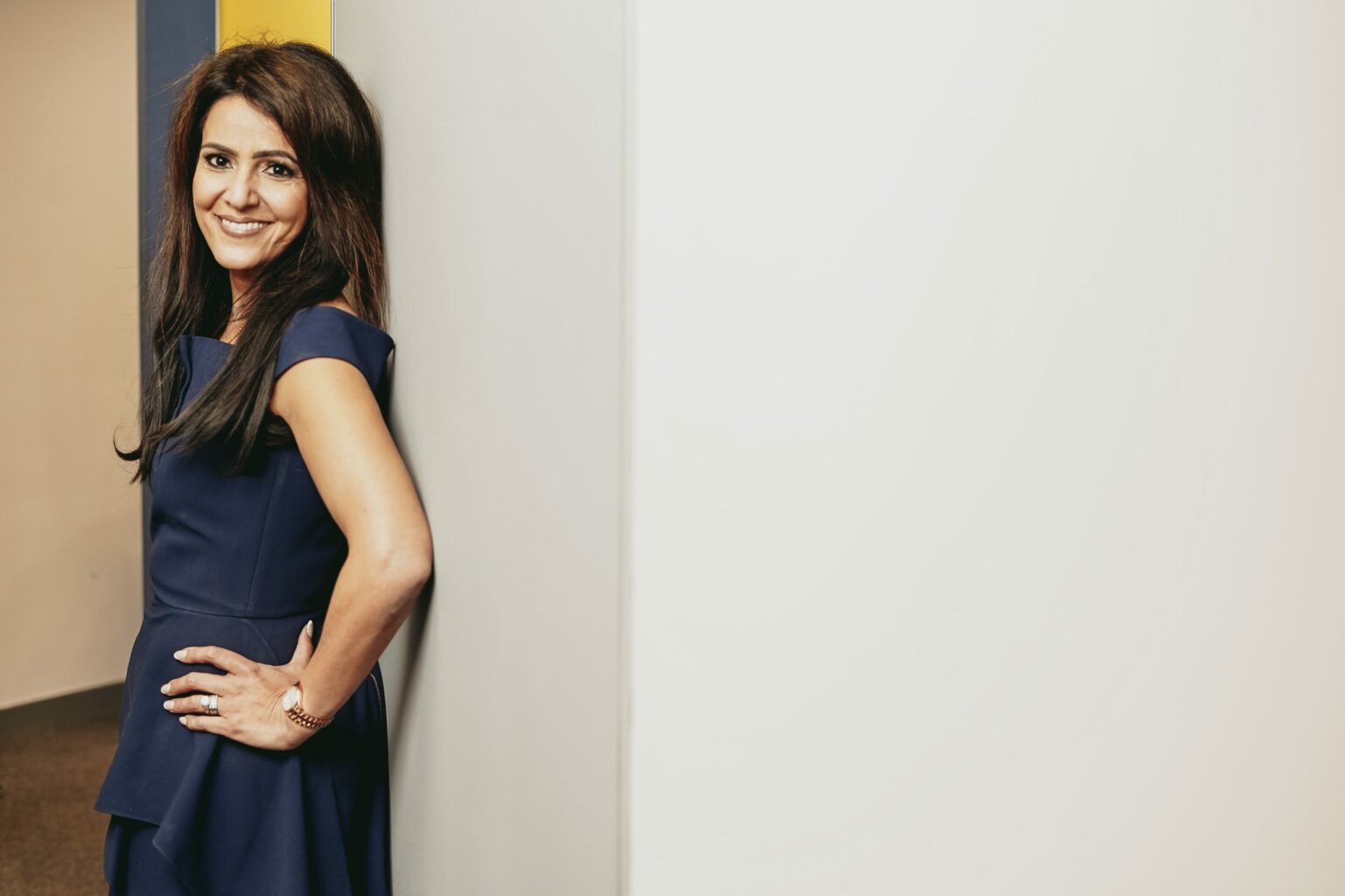
I come from a traditional Indian background where there was a taboo surrounding the idea of girls pursuing both higher education and going out to work.
Societal expectation was that a woman’s primary role was in the home.
My father came to the UK in the 1960s with nothing, before starting his own very successful business. Sadly, he died when I was 15.
My entrepreneurial spirit was inherited from my father, but it was my mother who played a pivotal role in empowering and supporting me to pursue my dreams.
I became the first girl in the family community to be allowed to pursue the path of higher education and attend university – setting a precedent for others to follow.
I learned from an early age that I needed to navigate my way through societal cultural expectations to realise my ambitions, which often involved compromise and sacrifice along the way. I wasn’t allowed to leave home to go to university and commuted on a daily basis.
Following graduating with a First Class Honours, in Applied Chemistry I got my dream job as a medical rep – again this was frowned upon but with the backing of my mother I continued undeterred on my path.
Soon after I was introduced by family to a suitor to whom I said ‘yes’, I was told I needed to give up my job to look after the extended family and home and fulfil the traditional expectations.
But I was determined that, with compromises, I could juggle both work and home.
I therefore worked doubly hard to ensure that I fulfilled the obligations to avoid being told that I had to give up the job I loved.
Soon after having my first daughter, I was turned down for promotion and vowed that I would never work for anyone else again.
Having seen a gap in the market for clinical audit provision to the NHS and the pharmaceutical industry, I set up my first business Oberoi Consulting in 2001.
I also built up a commercial property portfolio and set up Oberoi Business Hub in 2012.
My work and home lives have always been very different. At work I have never felt that I have been treated any differently to male colleagues or peers and, as an employer, I am focused on finding the right person for the right job – regardless of their gender.
At home, my career has never really been a topic of conversation and I have always been expected to be a home maker.
I do not resent this. In fact, I have taught my two daughters the importance of upholding many of our cultural values – albeit on their own terms and with the freedom to achieve their career goals.
I feel gender parity is improving across all cultures. In my family, work and friendship circles, women are regarded as equals.
However, I still meet many young girls who tell me they are still facing the same barriers and restrictions that I did at their age, so there is clearly still a long way to go.
I firmly believe that education is the key to freedom of choice and a large part of my life has been devoted to supporting organisations and charities that further the life chances of girls and women, both in the UK and across the world, and to inspire others so they can achieve their potential.
I am actually grateful for the battles that I have faced – and being able to prove one can do – and have it all – if you really want to.
My path has made me who I am today and given me the motivation to never give up. Failure has never been an option.
THE SOLOPRENEUR
Laura Firth, MiniAperture Photography
Laura is the founder of MiniAperture Photography, a company she established towards the end of 2019. Her firm helps businesses elevate their brand through beautiful photography. It offers a range of services, from virtual tours and portraits, through to drone photography.
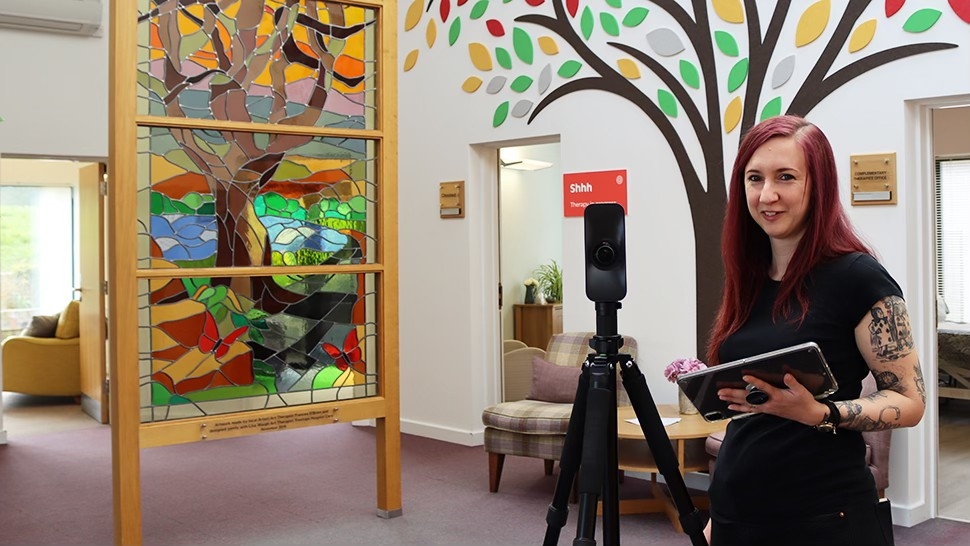
MiniAperture Photography started life as a side-hustle to my part-time job.
At the time, I thought I’ll just do this on the side for a few years and see where it takes me.
I was desperate to be in control of my own destiny. I’d had enough of being excluded from progression opportunities because of my need to fit work in around my children.
After years of job-hopping, of struggling to find my niche, of constantly being stifled from progressing in any career, I decided I’d had enough.
So, I wrote my first ever business plan, I secured a start-up loan, and I started teaching myself how to be a professional photographer.
Early on, I attracted some great clients, some of whom I still collaborate with today.
Cue March 2020. My side-hustle had to take a back seat as the world came to a grinding halt.
Within a few months, the property industry boomed because people were spending more time at home.
The need for my services absolutely skyrocketed. By August 2020, I was so busy with my “little” side hustle that I had to hand my notice in at work – after just eight months of trading!
It was terrifying but liberating. I thought this would solve all of my problems as a solopreneur mum – I could work when I wanted to, and I could have time off for the school holidays. The perfect work/life balance. Not to mention that the world was my oyster as far as progression was concerned.
What I didn’t anticipate was how demanding having a small business would be, especially one you’re so passionate about.
The nature of my clients’ businesses means that it’s almost impossible for me to take time off.
Telling clients that you can only offer appointments during school hours and term time has had very mixed reactions.
It’s made me feel inadequate and unprofessional at times. Especially on the odd occasion where my (very well behaved) kids have had to join me on shoots.
The business world still feels very male dominated with little patience or understanding for family needs.
Attitudes are still mostly quite archaic, despite the very real need for flexible family working and greater gender parity.
So, here we are in 2024 and I love my work-life more than ever. But unless I put work first and family second, I still feel as though I’m being restricted from even greater achievements.
And sadly, I know I’m not alone. However, necessity is the mother of invention and I’m currently planning a new side hustle! I wonder where this one will take me. Balancing two businesses single-handedly can’t be that hard, can it?
THE APPRENTICE
Sophie Shapcott, Smith Partnership
Sophie is marketing and business development executive at law firm Smith Partnership. Last year, she was named joint winner of the Apprentice of the Year Award at East Midlands Chamber’s Enterprising Women Awards. She has worked at Smith Partnership since 2018 after studying for a Level 3 Apprenticeship in Digital Marketing.

When I left school, I wasn’t really sure what I wanted to do with my life.
I knew that I was creative, and that I wanted to have a successful career in the professional world but thought that it wasn’t something I would be able to achieve.
There used to be quite a stigma around the word ‘apprenticeship’, and I was quite apprehensive about starting this route after dropping from college, but I quickly began to realise that I was far better suited to a practical on the job style of learning.
I started working at Smith Partnership after completing my Level 3 in Digital Marketing.
I joined the company as a Marketing Assistant, a shy 19-year-old.
Today, thanks to the support of my firm, I have recently completed a Level 6 Marketing Managers Apprenticeship, which I am proud to have achieved a distinction in. I’m now responsible for implementing our marketing operation.
My current role is broad, involving everything from creating strategy for internal and external audiences, to organising events, managing Smith Partnership’s digital presence, branding, conducting market research, reporting, having responsibility for the website, and designing artwork for marketing materials.
I’ve been very lucky to have benefitted from such strong support at Smith’s.
However, when it comes to gender parity in the wider marketing industry, I think that the ‘marketing girl’ stereotype is very much how the job can be perceived when you are a female in this profession, a view purveyed in popular culture.
Do I think this is getting better? Yes and no. More females in marketing are going further than they did before and are being promoted into higher roles and I feel are being taken more seriously, but I think the cliché does still linger.
I’m very proud of what I have achieved already in my career, and I’m excited for the next couple of years.
My future aspirations are to help more females get into this industry, to advocate for apprenticeships, and to prove that being a female marketer is about a lot more than just making things look pretty!

